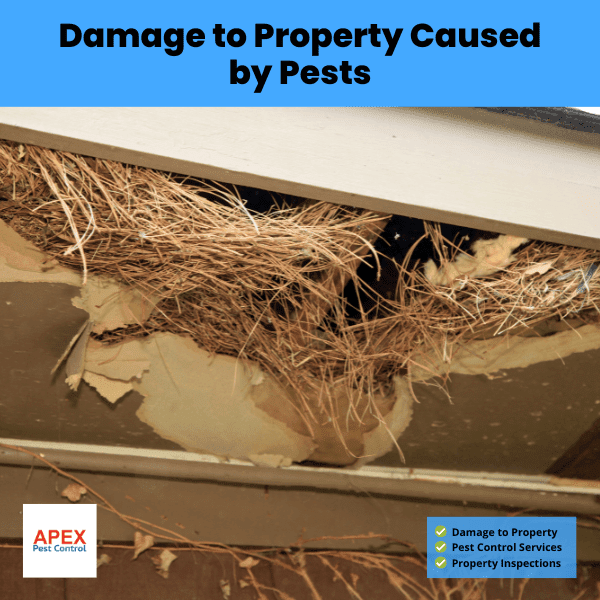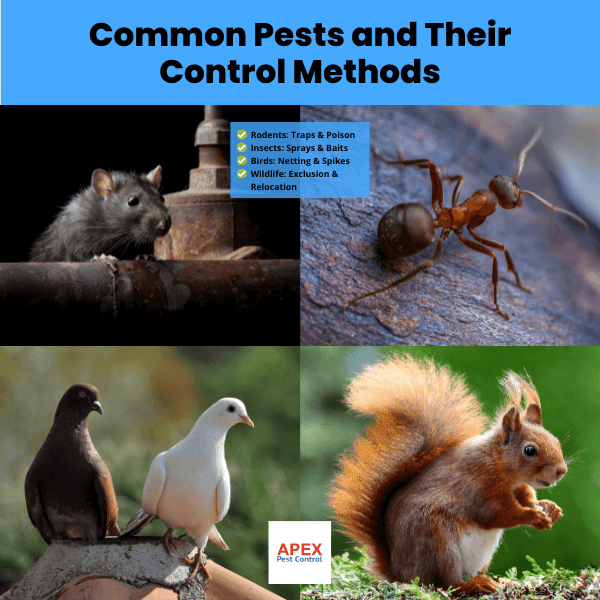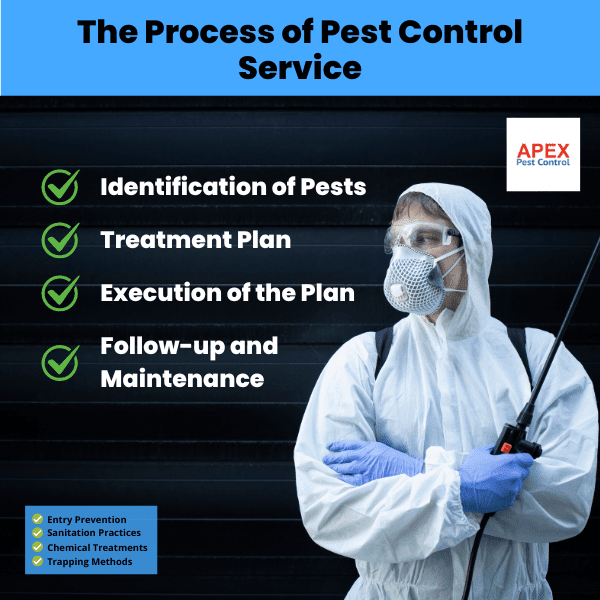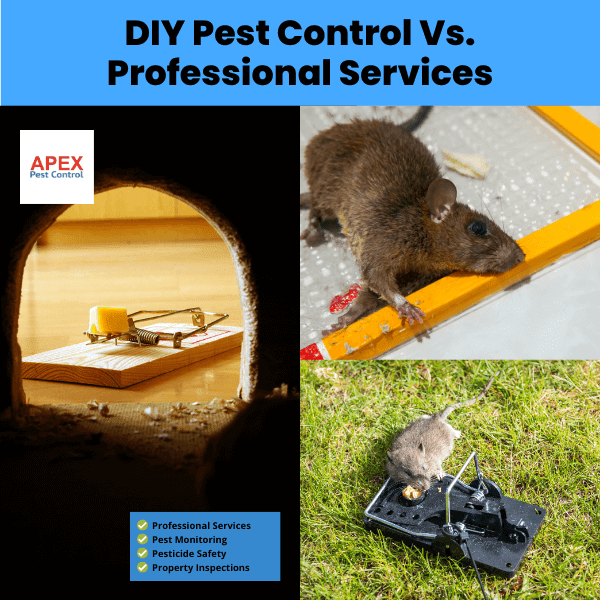Effective Rat Control: Proven Strategies From Pest Control Services
The importance of pest control services cannot be overstated. Pests pose several risks, including health hazards, damage to property, and a significant impact on our quality of life.
Discover our comprehensive guide from Rodent Exterminators on proven techniques for safe and efficient rat control in your home.
Health Risks Posed by Pests

Various pests can cause severe health issues. Rodents are known carriers of diseases such as Hantavirus and Salmonella that can harm humans. Insects like mosquitoes and ticks spread deadly diseases like Zika virus, Malaria, or Lyme disease. Cockroaches also carry harmful pathogens causing illnesses ranging from diarrhoea to asthma attacks.
The threat posed by rats extends to diseases such as leptospirosis and hantavirus, making rodent control strategies essential for protecting human health.
Damage to Property Caused by Pests

Pests not only threaten human health but also cause substantial damage to property. Termites are notorious for their destructive nature; they consume wood weakening the structure over time leading to costly repairs or replacement needs. Similarly, rodents gnaw through wires posing fire hazards while insects like carpet beetles ruin fabrics and carpets.
Rats contribute significantly to structural and economic damage, often being responsible for wire damage leading to fires, exacerbating economic losses.
Impact on Quality of Life
Beyond physical health risks and property destruction, pests significantly affect our well-being. The presence of cockroaches in homes is embarrassing while bed bugs disrupt sleep patterns leading to stress or anxiety.
Environmental cleaning and rodent-proof bins are proactive prevention measures to improve living standards by maintaining a pest-free environment.
Pest Control Services: An Overview

Exploring various types of pest control services provides insight into specialised approaches:
Residential Pest Control
These services focus on controlling pests within residential premises, with an emphasis on safeguarding households from common pests—termites, cockroaches, among others—using methods such as chemical sprays or baits
Commercial Pest Control
This branch caters mainly to businesses where a pest-free environment is crucial—restaurants where cleanliness matters the most or warehouses needing protection against rats damaging stored goods are examples here requiring specialised commercial pest control measures.
Agricultural Pest Control
The agriculture sector utilises this service primarily for controlling crop-damaging pests—insects eating leaves affecting yield dramatically necessitating effective agricultural pest management techniques.
Integrated Pest Management (IPM) successfully combines exclusion measures, sanitation and habitat modification, and trapping and baiting for holistic pest elimination.
Common Pests and Their Control Methods

Rodents: Traps & Poison
Rodent infestations require trapping mechanisms for capture, often followed by poisoning for complete elimination.
Insects: Sprays & Baits
Pesticide sprays are common against insect pests, but baits prove effective, attracting insects to poisoned food sources, ensuring gradual population reduction.
Birds: Netting & Spikes
Netting or spikes work as deterrents preventing birds from landing on rooftops or windowsills, thereby reducing bird infestation problems.
Wildlife: Exclusion & Relocation
For wildlife intrusions like racoons, exclusion strategies blocking their entry points into homes work well, and in many cases, humane trapping followed by relocation is employed.
Factors to Consider When Choosing a Pest Control Service

Consider the firm’s experience and reputation within the community—user reviews offer useful insights here.
Experience and Credentials
Ensure the pest service provides thorough property inspection and tailors strategies like humane extermination and entry prevention to specific issues.
The Process of Pest Control Service

An initial inspection identifies potential infestation sites and determines pest species present, aiding subsequent steps.
Identification of Pests
Accurate identification of pests helps develop an effective treatment plan—different pests require unique management techniques.
Treatment Plan
The next step involves developing a comprehensive treatment plan tailored according to the identified pest type, severity of infestation, among other things.
Execution of the Plan
Plan execution follows where trained technicians apply treatments safely, ensuring maximum effectiveness.
Follow-up and Maintenance
Regular follow-ups ensure continued success in controlling future infestations along with maintenance activities focused on prevention.
DIY Pest Control Vs. Professional Services

Pros and Cons of DIY Pest Control
DIY methods can be cost-effective and provide immediate solutions. However, a lack of knowledge may lead to incomplete pest removal or potential harm due to improper chemical use.
Pros and Cons of Professional Services
Professional services offer comprehensive solutions with their expertise and resources. The downside is that it can be more costly, and scheduling conflicts might occur.
The Future of Pest Control Services

Technological Advancements
New technologies like heat treatments for bed bugs or drone-based pesticide application methods improve effectiveness drastically.
Eco-Friendly Methods
Increasing environmental consciousness has led to eco-friendly control methods minimising damage caused by chemicals.
Integrated Pest Management
This holistic approach combines multiple techniques (prevention, monitoring, etc.) focusing on long-term pest management over reactive measures.
Final Thoughts
Importance of Regular Pest Control
Regular pest control helps in early detection, preventing large-scale infestations, and maintaining a healthier living environment.
Role of Homeowners and Businesses in Pest Control
Both homeowners and businesses play significant roles by practicing good sanitation, reducing food sources for pests, and thus contributing towards successful pest management.
Conclusion
Dealing with pests requires patience—remember not all infestations are preventable, but regular inspections along with timely professional intervention helps manage them effectively.
Frequently Asked Questions
How often should I get my property inspected for pests?
A bi-annual inspection is recommended as most pests reproduce twice a year. However, high-risk areas might require quarterly inspections.
Are DIY methods sufficient against severe infestation?
While some minor problems can be handled through DIY approaches, severe cases require professional help ensuring complete elimination.
Are pesticides harmful to humans?
Yes, if improperly used or mishandled; however, licensed professionals utilise approved products responsibly, minimising associated risks.
What is the meaning of pest control services?
Pest control services involve the management, reduction, or elimination of unwanted insects and pests from buildings and other areas where they are not wanted.
How does pest control work?
Pest control typically employs a combination of chemical treatments and natural methods to manage or eliminate infestations. Traps and other strategies may also be used for rodent control.
What does pest control do in your house?
In your home, pest control applies substances designed to eliminate or repel harmful insects and pests, ensuring a safer environment for your household.
Is pest control worth doing?
Engaging a professional pest management company can greatly reduce concerns about risks to your home and family’s well-being, making it a worthwhile investment for peace of mind.
How long should a pest control treatment take?
Treatment times can vary, but for common pests like ants and cockroaches, it usually takes about 15 to 30 minutes. However, the duration may differ depending on the severity of the infestation.

Tony Johnson, Founder & Lead Technician at Apex Pest Control, is a BPCA and NPTA accredited pest management expert with over 35 years’ hands-on experience. Tony specialises in Integrated Pest Management and ensures all services comply with UK pest legislation, including the Wildlife and Countryside Act 1981 and COSHH Regulations 2002. His commitment to continual learning and adapting to industry best practices means clients receive effective, safe solutions for pests affecting homes and businesses across South Yorkshire. Tony’s dedication to professional standards, ethical treatment methods, and local expertise has made him a trusted partner for pest control and prevention.
-
BPCA & NPTA accredited | CHAS certified
-
Committed to UK pest law compliance & safety
-
Focused on effective, ethical pest management for South Yorkshire


